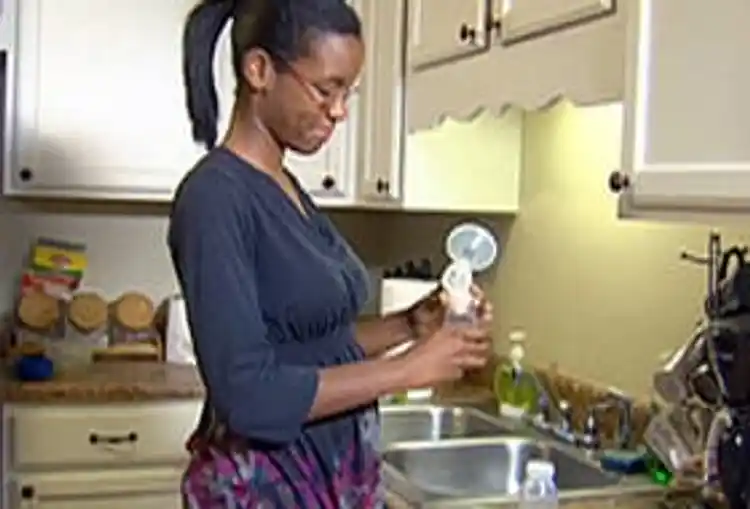Breastfeeding Supplies

Hide Video Transcript
Video Transcript
Tanya Altmann, MD
There are some basic supplies many nursing moms consider crucial to successful breastfeeding. We'll take you through the list step by step. Kelly Hightower, RN
Leaking is very common… Tanya Altmann, MD
Leaks WILL happen. Prepare for those times when your milk floweth over with breast pads. Kelly Hightower, RN
Once they do become wet, change them for your breast health… Tanya Altmann, MD
Choose between cotton disposables and reusable washables depending on what works best for you. Good, supportive bras are a must. Look for comfort, fit and convenience. Choose from: specially made nursing bras with easy-to-open flaps; regular bras that unfasten or open in front; or easy-access nursing tops, camisoles and nightgowns. Kelly Hightower, RN
Medically purified lanolin is an excellent choice, unless you have a wool allergy. Tanya Altmann, MD
In choosing nipple creams or lotions, look for those labeled safe for nursing mothers and babies. Kelly Hightower, RN
And rub it between your two fingers to warm it. Tanya Altmann, MD
The old-fashioned way is still the best method to care for your breasts – gently wash and air dry. Also it's best to get professional advice before using nipple guards, protectors or shields. If you are having trouble nursing – or your baby is having difficulty latching on – see a lactation specialist for individual guidance. Many nursing moms use breast pumps to express their milk for convenience, work or travel. Manual pumps or small electric or battery powered models are less expensive and good for occasional use. Good quality automatic pumps can be pricey, but are more efficient at emptying breasts and protecting milk supply. A double electric pump – or one that allows you to express milk from sides both at one time – is the best choice for moms who work outside the home. Most stores do not allow returns – so if possible – examine and compare display models to get a feel for how they operate. You can also rent hospital-grade pumps from lactation consultants and hospitals. Using a pump takes a bit of practice, so go ahead and give it a try as soon as breastfeeding is well established. Generally, 3-to-4 weeks is an ideal age to introduce expressed milk – let baby get used to taking one bottle a day as you get accustomed to the pump. Start by washing your hands thoroughly. Then find a comfortable, private spot where you can relax and remain calm for best milk letdown and production. Center your nipple in the middle of the pump so it doesn't pinch or irritate. If you're using an electric pump, begin at the lowest suction level, and increase the tug slowly. A typical session lasts about 10-15 minutes per breast. With a manual pump, you control the speed by squeezing or using a plunger. Expect pumping sessions to at least double in time. When finished, gently insert a finger between your breast and the shield plunger. Remember to clean all pump parts in the dishwasher or with hot soapy water and dry before the next use. When it comes to storing your breast milk
Use clean bottles or specially made plastic storage bags.; Securely seal and date the containers Then place them in back—not door—of the refrigerator for up to three days; Or in the freezer for one to three months. Before using frozen milk it should be thawed and brought to at least room temperature by using warm, running water or a container of warm water. Never use a microwave –it destroys the healthy, infection-fighting antibodies in breast milk and the uneven heating could burn baby's mouth. Discard any milk that has been warmed or is leftover after baby drinks from the bottle. Mom
Keep going… Tanya Altmann, MD
Soon you'll be breastfeeding and/or pumping on the go, and for that there are plenty of portable pumps and cover-ups to make the mission discreet. Know always, there is nothing wrong with going public – it's your own comfort level that counts. With all the benefits breast milk offers newborns – from fewer ear infections to a reduction in the rate of SIDS – pediatricians encourage mothers to keep breastfeeding as long as possible. For WebMD, I'm Dr. Tanya Altman. 
